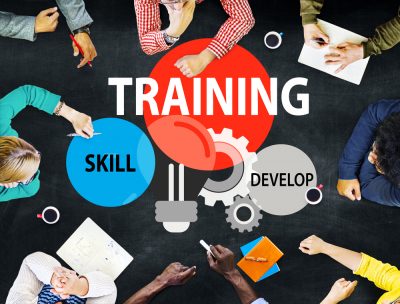The 120% technology and skills ‘boost’ deduction is a tax incentive introduced in the 2022-23 Federal Budget for small and medium-sized businesses (SMEs) in Australia. The boost allows eligible SMEs to claim a 120% tax deduction for certain types of expenses related to technology, skills, and training for their staff.
In the last article, we discussed the eligibility requirement and details of the $20k technology investment boost. This article will be focused on the Skills and Training Boost, which breaks down into the following key points:
The Skills and Training Boost
The Skills and Training Boost provides a 120% tax deduction for external training courses offered to employees. The goal of this boost is to help SMEs grow their workforce by upskilling employees and improving their efficiency.
Who qualifies for the Skills and Training Boost?
Only employees of the business are eligible for the boost. Sole traders, partners in a partnership, independent contractors, and non-employees do not qualify. Additionally, associates, for example, spouses or partners, or trustees of a trust, are also not eligible.
Rules for the Skills and Training Boost:
- Registration for the training course must have occurred from 7:30 pm (AEST) on 29 March 2022 until 30 June 2024.
- The training must be deductible to the business under ordinary rules, meaning it must be related to how the business earns its income.
- The training must be delivered by a registered training provider, and the provider must charge the business (either directly or indirectly) for the training.
- The training must be for employees of the business and must be delivered in-person in Australia or online.
- The training provider cannot be the business itself or an associate of the business.
What can be included in the Training Expenditure?
Training expenditure includes the costs of the training itself, as well as incidental costs such as books or equipment necessary for the training course. However, these incidental costs are eligible for deduction only if the training provider charges the business for these expenses.
How is the bonus deduction calculated?
The bonus deduction is calculated as 20% of the amount of expenditure the business could typically deduct. For example, if a business spends $10,000 on eligible training, the bonus deduction would be 20% of $10,000, which equals $2,000. This bonus deduction is not received in cash but is used to reduce the business’s taxable income.
What organizations can provide training for the boost?
Not all training courses provided by companies will qualify for the boost. Only courses charged by registered training providers within their registration will be eligible. Typically, these are vocational training courses that lead to a trade or contribute to a qualification, rather than professional development courses.
Qualifying training providers are registered by organizations such as:
- Tertiary Education Quality and Standards Agency (TEQSA)
- Australian Skills Quality Authority (ASQA)
- Victorian Registration and Qualifications Authority
- Training Accreditation Council of Western Australia
It’s worth noting that while not all courses may be delivered by registered training organizations, there are still plenty of eligible options available, particularly short courses offered by universities or flexible courses designed for upskilling rather than degree qualifications.
Conclusion
If your business is eligible and has made eligible expenses, it’s essential to keep track of the documentation and ensure compliance with the rules to maximise the deductions. Consulting with a tax professional or accountant can also be beneficial in navigating the complexities of these deductions.
Should you please have any question in regards to above, please feel free to contact our friendly team in Pitt Martin Tax at 0292213345 or info@pittmartingroup.com.au.
The material and contents provided in this publication are informative in nature only. It is not intended to be advice and you should not act specifically on the basis of this information alone. If expert assistance is required, professional advice should be obtained.
By Zoe Ma @ Pitt Martin Tax

Experienced Tax Accountant and Business Advisor with a demonstrated history of working in the accounting industry. Skilled in Tax, Accounting, Business Advisory and SMSF. Strong entrepreneurship professional with qualification Master of Professional Accounting, CPA Public Practice, Registered Tax Agent, Registered ASIC Agent, NSW Law Society External Examiner, Trust Account Auditor and Diploma of Finanical Planning. Specialised in SME, tax planning and international tax, he helped client save ample money and create wealth.

